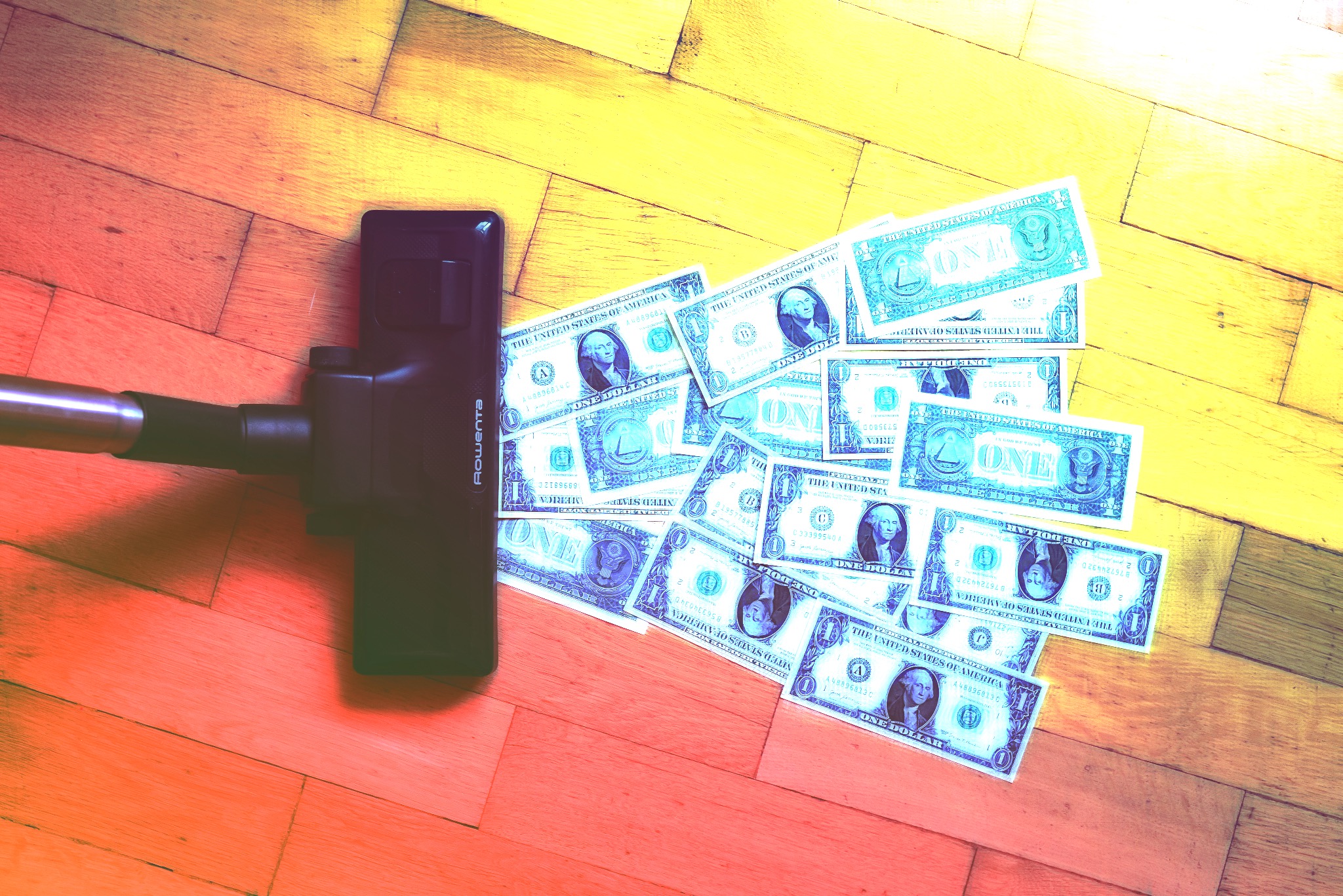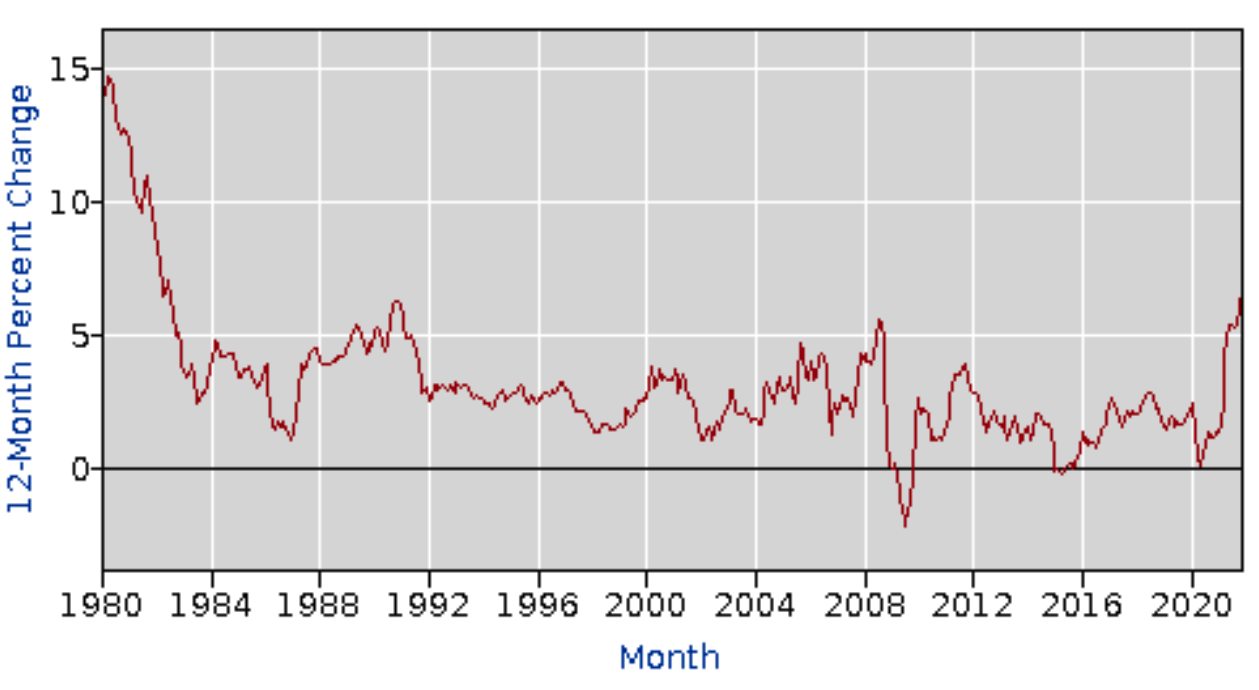
US Inflation Rose to Nearly Four-Decade High of 7% in December
The U.S. Labor Department’s consumer price index (CPI), the most widely used gauge for tracking inflation, rose to an annual clip of 7%, hitting predictions made by economists, marking the highest increase since June 1982 and topping November’s 6.8% increase.
The core CPI, which excludes more volatile energy and food prices, rose by 0.6% month-over-month, exceeding economists’ forecasts. In November, the growth was 0.5%.
In the minutes after the CPI report was released by the Labor Department's Bureau of Labor Statistics (BLS) on Wednesday, bitcoin was changing hands at about $43,900, up 1.1%.

Chart shows the U.S. consumer price index rising in December at the fastest clip since the early 1980s. (Bureau of Labor Statistics)
Many investors say bitcoin can act as a hedge against inflation, because its supply is tightly controlled by the underlying blockchain's original programming. But a push by the U.S. Federal Reserve to raise interest rates to tackle high inflation could make fixed-income assets like bonds more attractive and reduce the appeal of riskier bets on assets like stocks and cryptocurrencies.
"The trend in prices is still headed north," Peter C. Earle, an economist at the American Institute for Economic Research, told CoinDesk. "At this point, part of the ongoing policy debate will likely shift to whether the Fed waited, or is waiting, too long to react to rising prices."
On Tuesday, Fed Chairman Jerome Powell appeared before the U.S. Senate Banking Committee for his confirmation hearing, where he said that inflation remains well above the Fed’s target. That “is telling us that the economy no longer needs or wants the very highly accommodative policies that we’ve had in place,” he said.
Bitcoin is up 3.1% over the past 24 hours after the hearing.
Powell added that the Fed might raise interest if inflation persists at high levels and longer than expected. Powell's hints at increased interest rates in December were followed by a steady decline in bitcoin’s price.
“The Fed sees inflation lasting till mid-2022 and that is probably when they will let the balance sheet decline,” Edward Moya, a senior market analyst at online brokerage Oanda, said. “The path of inflation may drive quicker rate hikes and a sooner start to shrinking the balance sheet, and that could be bearish short term for risk assets such as cryptos, but equities will likely feel more pain.
“There is still significant money on the sideline waiting to buy bitcoin, but many crypto traders are having a wait-and-see approach,” Moya said.
DISCLOSURE
The leader in news and information on cryptocurrency, digital assets and the future of money, CoinDesk is a media outlet that strives for the highest journalistic standards and abides by a strict set of editorial policies. CoinDesk is an independent operating subsidiary of Digital Currency Group, which invests in cryptocurrencies and blockchain startups. As part of their compensation, certain CoinDesk employees, including editorial employees, may receive exposure to DCG equity in the form of stock appreciation rights, which vest over a multi-year period. CoinDesk journalists are not allowed to purchase stock outright in DCG.


